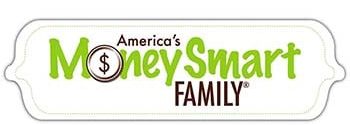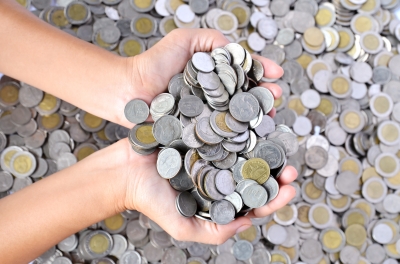Teaching Kids The power of Savings and Compound Interest
Albert Einstein described compound interest as, “the most powerful force in the Universe.”
What is Compound Interest?
When a bank compounds interest it means that your money earns more money or interest at a specified interest rate each month.
The following month, your larger amount of money (your original amount plus the interest earned) earns more interest based on the new total.
How Our Kids Responded to Compound Interest
Seeing your kids understand the concept that their money can earn them even more money is exciting. Once our kids grasped the significance, they would eagerly tear open their bank statements to see how much their money had earned.
Of course, the few pennies of bank interest aren’t going to encourage them to become prolific savers, but you could teach them with a hands-on, one-week experiment.
Follow the scenario below and you’ll see the compound interest light bulb go on when the experiment is done.
[block id=”22339″ name=”Kids & Money Quiz”]
Fifty Percent Interest Teaching Tool
What you’ll need:
- A clear plastic jar labeled “My Compound Interest Account”
- A second jar labeled “Bank”
- 1 dollar bill, 40 quarters and 42 pennies
- ½ sheet of notebook paper labeled Estimate on one side and Actual Interest on the other
Day 1: Put one dollar in the “My” Compound Interest Account jar. Start off by asking your child how much money would be earned in one week if the bank paid 50 percent interest each day. Explain to them that 50 percent interest on one dollar is 50 cents. Show them the Bank jar and let them know that the Bank has lots of money for them to earn. Write down their guess on the front side of the piece of paper and put it along with one dollar in their jar.
Day 2 Using a calculator help them figure out their first day’s interest ($1 x .50=.50 ). Take two quarters out of the bank jar and put them in your child’s jar. Have your child calculate the new total and create a ledger on the back of the sheet of paper labeled Actual Interest.
| Date | Interest | Total |
|---|---|---|
| .50 | $1.50 |
Each day for the next week go through the same exercise.
- Count how much money they have in their bank
- Calculate 50% interest by multiplying the total by .5
- Pay them the interest (refer to the table below)
- Write the date, interest received and new total on the ledger
| Day | Interest earned at 50% | Quarters | Pennies | Total |
|---|---|---|---|---|
| 1 | 0 | $1 | ||
| 2 | 50¢ | 2 | $1.50 | |
| 3 | 75¢ | 3 | $2.25 | |
| 4 | $1.13 | 4 | 13 | $3.38 |
| 5 | $1.69 | 6 | 19 | $5.07 |
| 6 | $2.54 | 10 | 4 | $7.61 |
| 7 | $3.81 | 15 | 6 | $11.42 |
At the end of the week calculate the total earned ($10.42). Explain that banks lend their money to other people or businesses. The bank charges the people who borrow interest. Some of the interest the bank earns is shared with you because you loaned the bank the money.
This would also be a good time to explain that it’s always better to be earning interest than it is to be paying interest. You’ll also need to explain that earning 50 percent interest is not a realistic expectation, but hopefully your child will understand how money that is allowed to earn interest over a long period of time will multiply. And that if they continually deposit more money the interest amount they earn will increase even more!
Teaching Compound Interest with 1 dollar invested at 10% interest per day
| Day | Total Saved | Interest Earned | Principle + Interest earned |
|---|---|---|---|
| 1 | 1 | ||
| 2 | 1 | $0.10 | 1.1 |
| 3 | $1.10 | $0.11 | $1.21 |
| 4 | $1.21 | $0.12 | $1.33 |
| 5 | $1.33 | $0.13 | $1.46 |
| 6 | $1.46 | $0.15 | $1.61 |
| 7 | $1.61 | $0.16 | $1.77 |
| 8 | $1.77 | $0.18 | $1.95 |
| 9 | $1.95 | $0.19 | $2.14 |
| 10 | $2.14 | $0.21 | $2.36 |
| 11 | $2.36 | $0.24 | $2.59 |
| 12 | $2.59 | $0.26 | $2.85 |
| 13 | $2.85 | $0.29 | $3.14 |
| 14 | $3.14 | $0.31 | $3.45 |
| 15 | $3.45 | $0.35 | $3.80 |
| 16 | $3.80 | $0.38 | $4.18 |
| 17 | $4.18 | $0.42 | $4.59 |
| 18 | $4.59 | $0.46 | $5.05 |
| 19 | $5.05 | $0.51 | $5.56 |
| 20 | $5.56 | $0.56 | $6.12 |
| 21 | $6.12 | $0.61 | $6.73 |
| 22 | $6.73 | $0.67 | $7.40 |
| 23 | $7.40 | $0.74 | $8.14 |
| 24 | $8.14 | $0.81 | $8.95 |
| 25 | $8.95 | $0.90 | $9.85 |
| 26 | $9.85 | $0.98 | $10.83 |
| 27 | $10.83 | $1.08 | $11.92 |
| 28 | $11.92 | $1.19 | $13.11 |
| 29 | $13.11 | $1.31 | $14.42 |
| 30 | $14.42 | $1.44 | $15.86 |
| Total Earned | $14.86 |
Teaching Compound Interst and Savings:
1 dollar invested and 1 dollar added each day at 10% interest
| Day | Total Saved | Money Invested | Interest Earned | Principle + Interest earned |
| 1 | 1 | |||
| 2 | 1 | $1.00 | $0.20 | $2.20 |
| 3 | $2.20 | $1.00 | $0.32 | $3.52 |
| 4 | $3.52 | $1.00 | $0.45 | $4.97 |
| 5 | $4.97 | $1.00 | $0.60 | $6.57 |
| 6 | $6.57 | $1.00 | $0.76 | $8.33 |
| 7 | $8.33 | $1.00 | $0.93 | $10.26 |
| 8 | $10.26 | $1.00 | $1.13 | $12.38 |
| 9 | $12.38 | $1.00 | $1.34 | $14.72 |
| 10 | $14.72 | $1.00 | $1.57 | $17.30 |
| 11 | $17.30 | $1.00 | $1.83 | $20.12 |
| 12 | $20.12 | $1.00 | $2.11 | $23.24 |
| 13 | $23.24 | $1.00 | $2.42 | $26.66 |
| 14 | $26.66 | $1.00 | $2.77 | $30.43 |
| 15 | $30.43 | $1.00 | $3.14 | $34.57 |
| 16 | $34.57 | $1.00 | $3.56 | $39.13 |
| 17 | $39.13 | $1.00 | $4.01 | $44.14 |
| 18 | $44.14 | $1.00 | $4.51 | $49.65 |
| 19 | $49.65 | $1.00 | $5.07 | $55.72 |
| 20 | $55.72 | $1.00 | $5.67 | $62.39 |
| 21 | $62.39 | $1.00 | $6.34 | $69.73 |
| 22 | $69.73 | $1.00 | $7.07 | $77.80 |
| 23 | $77.80 | $1.00 | $7.88 | $86.68 |
| 24 | $86.68 | $1.00 | $8.77 | $96.45 |
| 25 | $96.45 | $1.00 | $9.75 | $107.20 |
| 26 | $107.20 | $1.00 | $10.82 | $119.02 |
| 27 | $119.02 | $1.00 | $12.00 | $132.02 |
| 28 | $132.02 | $1.00 | $13.30 | $146.32 |
| 29 | $146.32 | $1.00 | $14.73 | $162.05 |
| 30 | $162.05 | $1.00 | $16.31 | $179.36 |
| Total Invested | $29.00 | |||
| Total Earned | $149.36 | |||
| % increase | $29 invested | 497.86% |
Image courtesy of Anankkml / FreeDigitalPhotos.net

